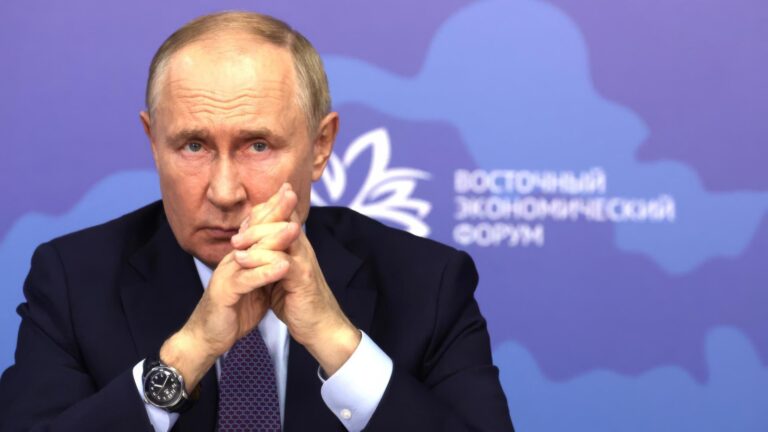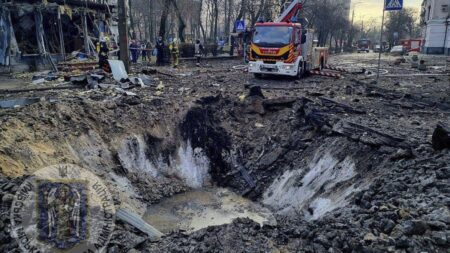Diplomatic Dialog: Putin and Qatar’s Emir Seek Solutions for Syria and Gaza
In a pivotal diplomatic encounter in Moscow, Russian president Vladimir Putin met with Qatari Emir sheikh Tamim bin Hamad Al Thani to discuss pressing issues surrounding the ongoing conflicts in Syria and Gaza.This meeting comes at a time of heightened tensions across the Middle East, with both leaders aiming to identify cooperative strategies to tackle humanitarian crises and geopolitical instability. Their discussions reflect a shared commitment to fostering dialogue as a means of addressing the multifaceted conflicts that affect millions of lives. The results from this high-level engagement could significantly influence international peace efforts in the region.
Collaborative Peace Efforts in Syria and Gaza
The Moscow talks marked an important step towards establishing peace in the protracted disputes over Syria and Gaza. Both leaders underscored the critical need for collaboration to alleviate humanitarian suffering intensified by ongoing violence. They discussed creating an extensive framework aimed at facilitating dialogue among conflicting parties, prioritizing regional stability and collective security. Key discussion points included:
- Humanitarian Assistance: Improving aid delivery mechanisms for regions affected by conflict in Syria and Gaza.
- Diplomatic Engagements: Initiating peace negotiations that involve all relevant stakeholders.
- Global Cooperation: Promoting unity among international powers to bolster peace initiatives.
This meeting also highlighted the strengthening partnership between Russia and Qatar, showcasing their mutual dedication to achieving stability within the Middle East.Both leaders recognized the intricate geopolitical landscape they navigate, committing themselves to work together towards solutions that respect community rights and aspirations. they agreed on enhancing diplomatic channels through regular consultations aimed at tracking progress on peace initiatives. Below is a summary table outlining their collaborative objectives:
| Aim | Action Steps |
|---|---|
| pursue Peace Negotiations | Create multi-party negotiation platforms |
| Boost Humanitarian Aid efforts | Cooridnate with global agencies for effective aid distribution |
Impact of Moscow Discussions on Regional Stability
The recent discussions between President Putin and Emir Sheikh Tamim illustrate how delicate diplomacy can be crucial for promoting stability in conflict-affected areas like Syria and Gaza. Both leaders understand that their joint efforts could significantly reshape regional dynamics, possibly easing tensions while paving avenues for humanitarian assistance initiatives.
The strategic implications from these talks suggest several potential shifts within regional relations:
- Evolving Alliances:The growing partnership between Russia and Qatar may encourage other nations within the region to pursue dialogue-based approaches.
- Civilian Welfare Focus:A commitment was made toward addressing urgent humanitarian needs amidst ongoing hostilities, highlighting civilian welfare as paramount.
- sustainable Conflict Resolution Frameworks:The establishment of collaborative strategies aimed at achieving lasting peace could diminish extremist influences across these regions.
| Negotiation Focus | anticipated Results | |
|---|---|---|
| Accessing Humanitarian Aid | Enhanced efficiency in delivering support | |
| Establishing Ceasefire Agreements | Decreased violence levels  and civilian casualties   |
International Response Recommendations for Emerging Crises in The Middle East
An effective international response is essential as tensions rise throughout the Middle East regarding crises unfolding especially within Syria​ ​and​ ​Gaza​. World leaders must prioritizediplomatic engagement alongside<strong multilateral discussionsto promote stability across this volatile region.This can be achieved through various measures including:Â
- Mediation Initiatives: Involve organizations such as UN actively facilitating dialogues among conflicting factions.
- Aid Mobilization: Allocate resources effectively providing necessary assistance directly reaching impacted communities while supporting refugee programs.
- Tactical Sanctions: Enforce targeted sanctions against entities perpetuating violence ensuring humanitarian supplies reach those most vulnerable.
- Nations Collaboration: Encourage intelligence sharing amongst countries focusing on emerging threats impacting overall security.
Additionally forming temporary coalitions comprising local stakeholders would enhance effectiveness when responding internationally focusing long-term resolution strategies protecting civilians through informed policies may include:




